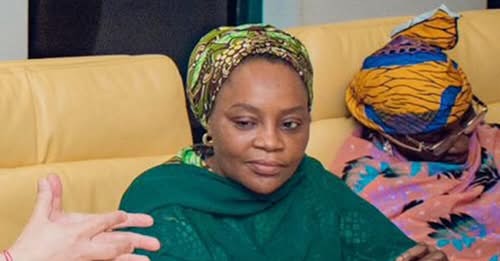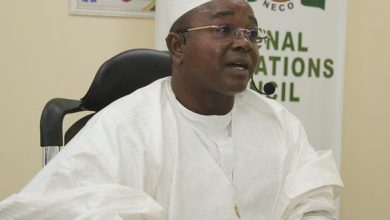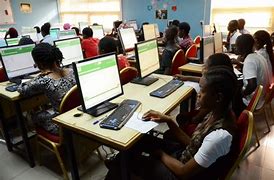UBEC seeks multi-sectoral approach to address out-of-scholl children challenge
The UBEC boss stressed that education is the right of every Nigerian child as captured in the article 26 of the 1948 universal declaration of human rights.

By Aisha Uthman
Aisha Garba, the executive secretary of the Universal Basic Education Commission (UBEC), says the nation’s 17 million out-of-school children is a staggering obstacle to progress towards achieving universal access to education for every Nigerian child.
Garba spoke during a with members of management and staff of the commission in Abuja, the nation’s capital, on her assumption of office as the UBEC executive secretary.
In a statement by David Apeh, spokesperson of the commission, the UBEC boss stressed that education is the right of every Nigerian child as captured in the article 26 of the 1948 universal declaration of human rights.
She promised to deploy strategies to advance the delivery of quality basic education for the millions of school-aged children in Nigeria.
“According to a World Bank capital index, students in Nigeria score 309 on a harmonized test score scale, where 625 is considered advanced attainment and 300 represents minimum attainment,” the statement reads.
“According to UNICEF, the primary school completion rate for Nigeria was at 59% in 2020 for boys and 51% for girls. The secondary school completion rate is even lower, with boys at 42% and girls at 36%.
“Access to higher education is still a challenge: while about two million candidates sit for the JAMB examinations every year, only about 500,000 are accepted.”
She highlighted the importance of partnership and collaboration to drive the development of basic education in the country.
Garba said her goal is to deliver on the UBEC mandate, which includes strengthening collaboration, partnerships, and institutional learning for effective service delivery.
“Together, we will work to increase access, improve quality, provide conducive and safe learning environments, supply adequate teaching and learning materials, and adopt the concept of ‘best fit’ in addressing specific basic education challenges, state by state and region by region (not a one-size-fits-all solution),” she stated.
She added that the commission under her watch would seek a multi-sectoral approach to address the demand and supply-side barriers to basic education which has continued to exacerbate the challenge of out-of-school children.
According to her, UBEC would work collaboratively with ministries, departments and agencies, commissions, and development partners on reforms and interventions to increase access and significantly reduce the high number of out-of-school children.
She listed some key action plans including the deployment of appropriate interventions, the use of technology, the construction of critical infrastructure, and the upgrading of school facilities.
“We will ensure the integration of children with special needs, promote education for the girl-child, and work with relevant partners to make schools safe and conducive for learning,” she added.
“In addition, we will work with local government education authorities and community stakeholders in expanding access to basic education in rural, disadvantaged, and hard-to-reach jurisdictions.
“We will work closely with state governors to increase the uptake and utilisation of the UBEC Matching Grants through strategic partnerships and engagement.”





